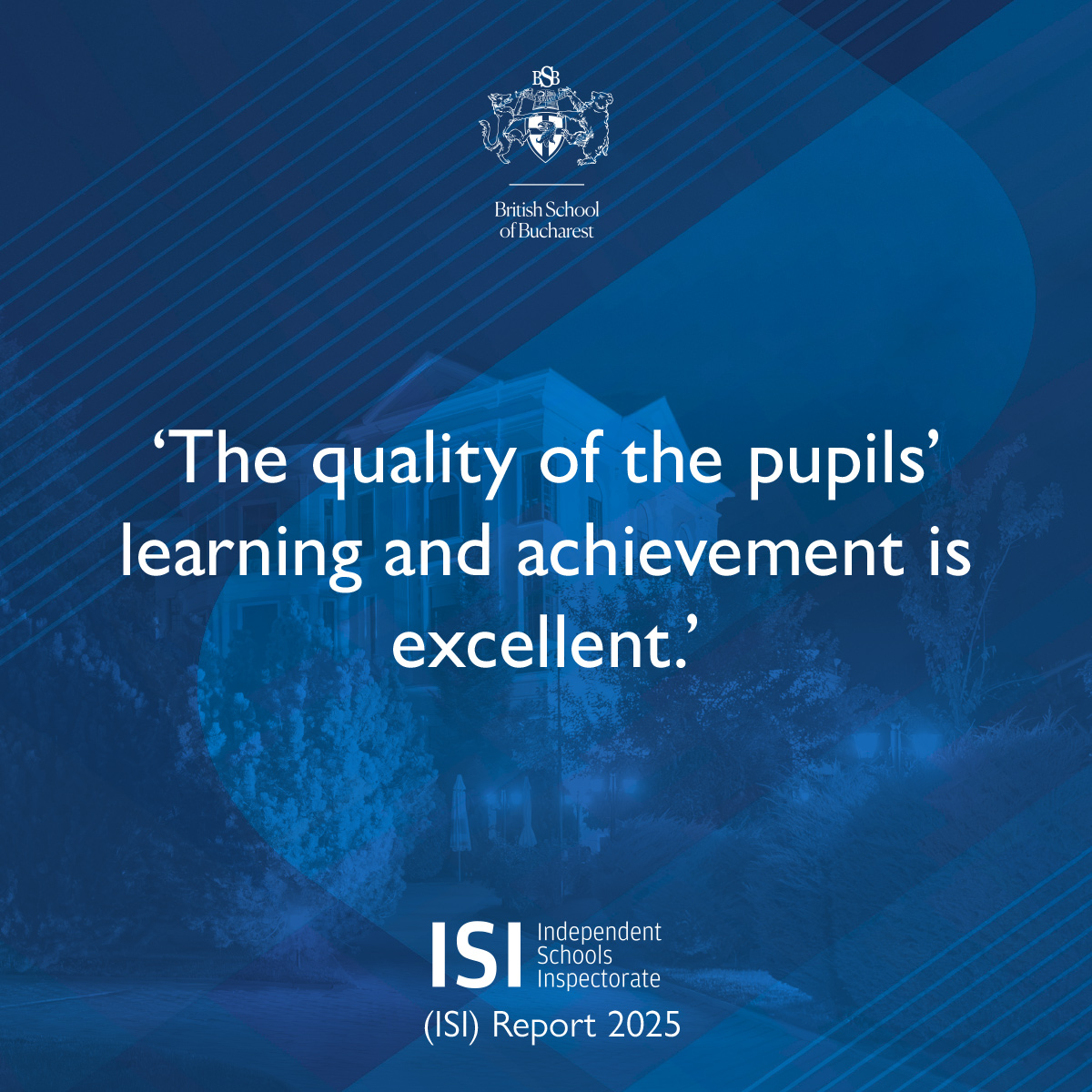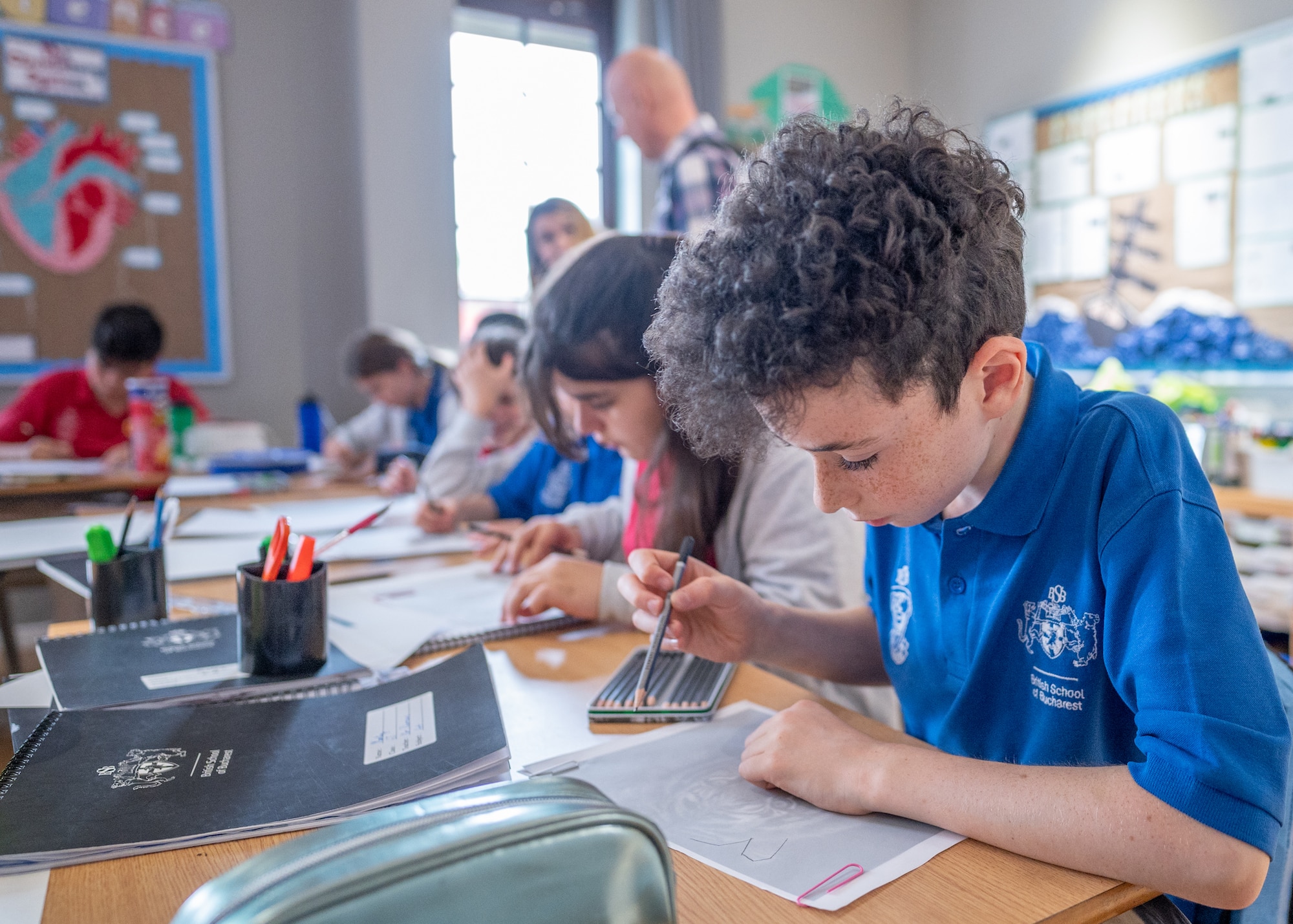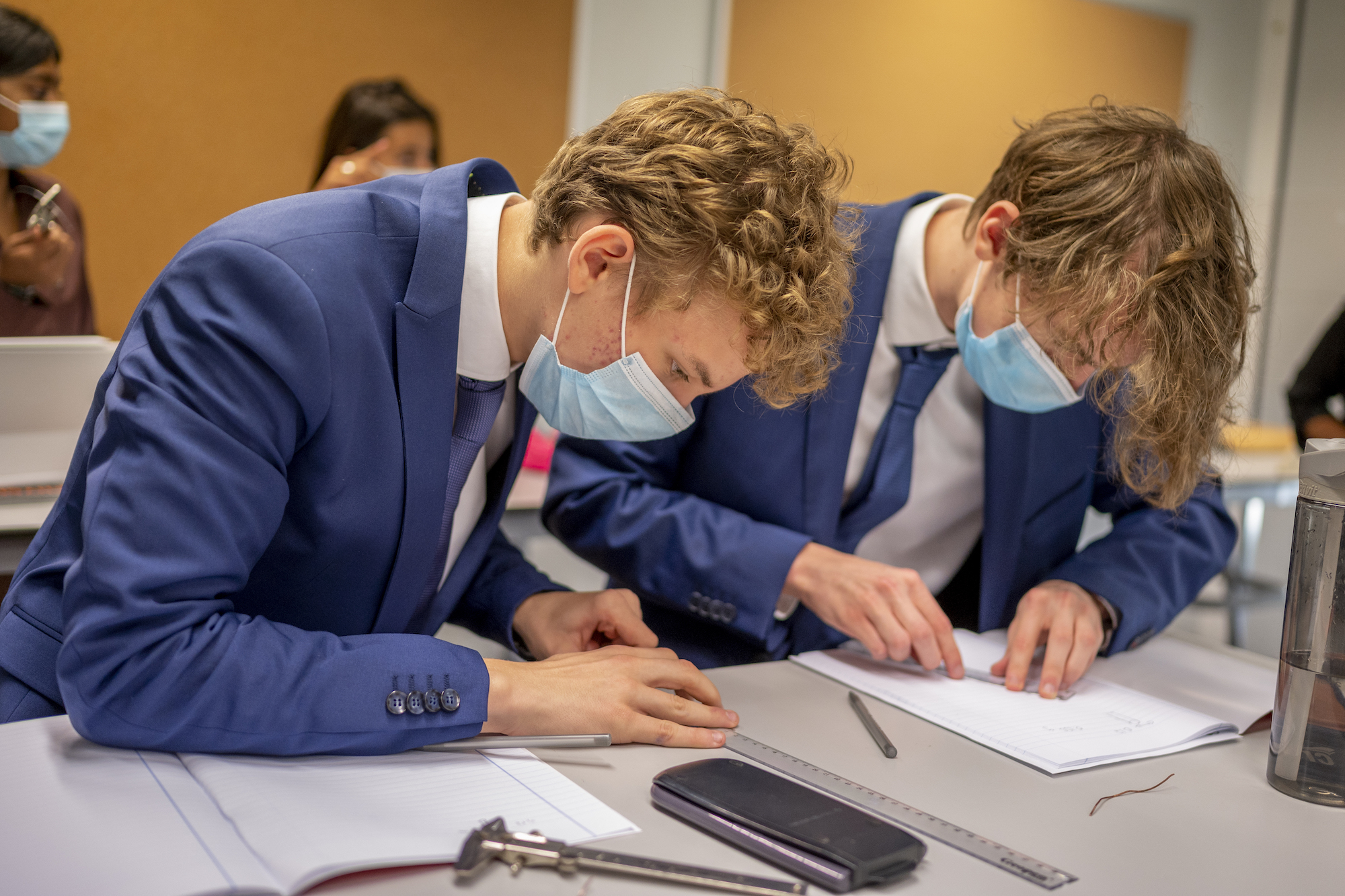At the British School of Bucharest, we teach the National Curriculum for England. This is often referred to as the British Curriculum. British education emphasises performance but always focuses on the children’s broader development. While acquiring knowledge is paramount, nurturing students’ sense of wonder and encouraging them to develop vital life skills and ultimately fulfil their potential is essential.
The Many Benefits of Teaching the British Curriculum
- One of the great strengths of the British Curriculum is the level of individual, tailored support it provides pupils from day one until they move on to higher education. Throughout their academic journey, the National Curriculum for England enables students to learn at the pace and intensity that suits them, even within a single lesson.
- Our experienced native English-speaking teachers plan practical, high-quality, and child-centred lessons. With their help, we have created a culture of respect and support beyond our pursuit of academic excellence at the British School of Bucharest. Thus, it’s the ideal environment for our students to feel safe to engage in their learning by thinking, discussing, examining, and creating.
- Our students are exposed to many innovative Science, Technology, Engineering, Art and Mathematics (STEAM) opportunities through the National Curriculum for England. These provide invaluable practical experiences that nourish creativity, flexibility, and collaboration skills and help our students prepare for the future workplace and even jobs that may not currently exist.
- Another vital benefit of learning the British Curriculum it’s that it’s the same in every part of the world. We know how important this is for parents who might need to move their children to a different school, often to foreign countries, when their job requires or because of other changes. We understand that parents are looking for educational stability for their children, which is precisely what the National Curriculum for England offers.
A Comprehensive Education
The curriculum provides a comprehensive education from the early years and becomes more specialised as students’ progress through IGCSE/GCSE and on to A-Level. British Curriculum offers as pre-university qualification the A-Level diploma, a highly respected and widely recognised qualification. It is recognised in the UK and other English-speaking countries but also globally as a respected pre-university qualification for secondary education.
Here are some advantages of the A-Level diploma versus IB qualification:
- Specialisation: One of the biggest advantages of the A-Level system is its emphasis on specialisation. A-Level students have the opportunity to study a smaller number of subjects in greater depth, allowing them to develop expertise in their areas of interest. In contrast, the IB requires students to study six subjects, three at higher level and three at standard level, which may not allow for the same level of specialisation.
- Curriculum: The A-Level curriculum is specifically designed to prepare students for university-level education. It is well-structured and rigorous and covers a wide range of subjects, from science and mathematics to humanities and arts. In contrast, the IB curriculum is more generalised and aims to develop students’ critical thinking and problem-solving skills, which may not be as relevant for students planning to pursue higher education in a specific subject area.
- Assessment: The A-Level system relies to a large extent on end-of-year exams, which test students’ knowledge and understanding of the subjects they have studied. This approach allows students to demonstrate their mastery of a subject and provides a clear indication of their abilities. We are able to access International A Level exams which also enable students to take a modular approach to the examinations. This means that they have clear markers of progress at the end of their penultimate year in school allowing for fully informed university applications and an externally verified transcript of results which is unavailable in other systems such as the IB.
- Recognition: A-Levels are widely recognised and respected by universities and employers around the world, particularly in the UK, Australia, and other English-speaking countries and certainly in all universities where courses are offered via the medium of English.
While both the A-Level and IB qualifications have their own unique strengths and weaknesses, the A-Level diploma is still considered by many to be the better option for students planning to pursue higher education. With its focus on specialisation, well-structured curriculum, assessment approach and widespread recognition, the A-Level provides students with a solid foundation for their future academic and career aspirations. Importantly, we combine our students’ academic studies with other enrichment elements within our provision, such as LAMDA, Sports Leadership and Extended Project Qualifications alongside service and leadership opportunities at BSB. Together this experience means that the benefits of some aspects of the IB such as the CAS element are matched within our broad, holistic provision for each student.

School Levels
Education at the British School of Bucharest is divided into the following:
- Early Years Foundation Stage (EYFS)
- Pre-Nursery (aged 2-3) *
- Nursery (aged 3-4) *
- Reception (aged 4-5) *
- Primary School
- Key Stage 1: Years 1 and 2 (aged 5-7) *
- Key Stage 2: Years 3 to 6 (7-11) *
- Secondary School
- Key Stage 3: Years 7 to 9 (aged 11- 14)*
- Key Stage 4: Years 10 and 11 (14 – 16) *
- Key Stage 5 or 6th Form: Years 12 and 13 (16-18) *
*the age of the child on 31st August for a September start.
A Diverse and Engaging Co-Curricular Programme
We enhance the National Curriculum for England with an extensive extra-curricular and co-curricular programme, which includes some high-calibre and sought-after CCAs, such as the BSB University courses in Primary School or Project Zephyr in Secondary School.
Children can choose from more than 140 high-quality CCAs that allow them to try new sports, attend academic extension classes (such as language learning) and pursue many interests or service opportunities that may eventually develop into lifelong passions.
The majority of CCAs take place within the campus in our impressive facilities. For CCAs requiring children to go outside the campus, the children are always accompanied by a Teaching Assistant and safe transport is provided.





